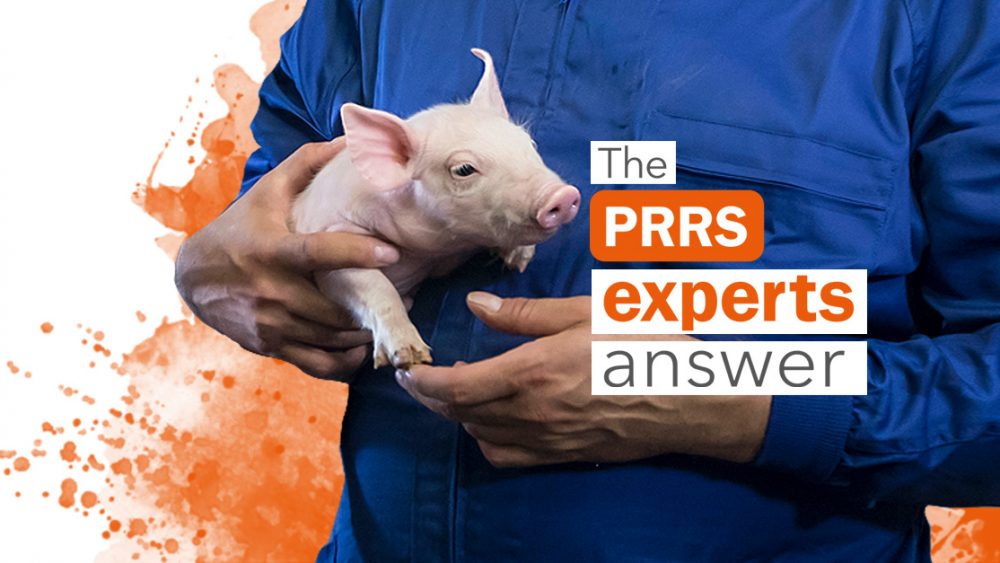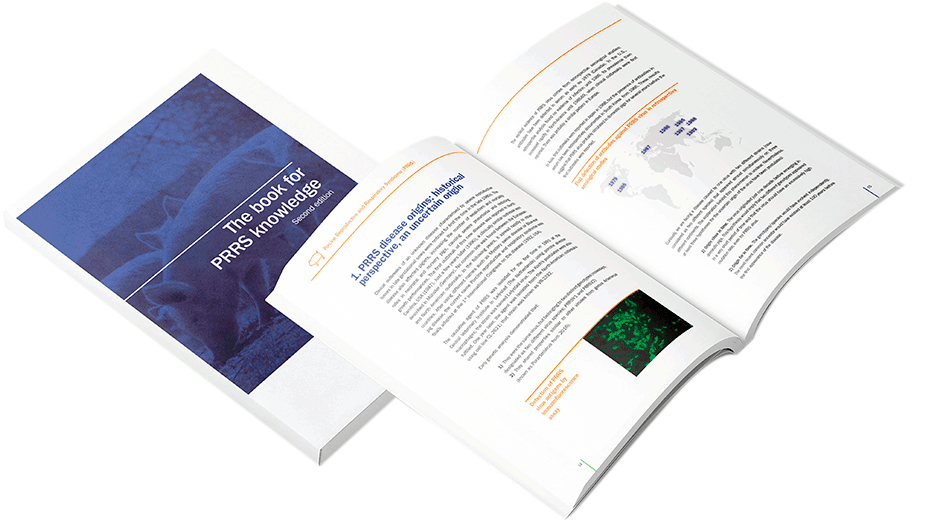Unfortunately, vaccination against PRRS is not as effective as other vaccines in preventing further outbreaks of disease when a new virus is introduced into the farm.
In many cases, prevention effectiveness is related to the strain that has been introduced. However, as far as we know, post-infection vaccination may be helpful. In a study performed at the University of Minnesota by Scott Dee team (Linhares, DCL et al.,2012) the vaccine was found to reduce virus excretion time in infected animals.
The research found that, after experimental infection, the amount of virus found at the air of pig vaccinated facilities, was lower than for the non-vaccinated animals. Therefore, post-infection vaccination, irrespective of the previous state of the animals, can help to stabilize the farm.
As for the vaccination program, the best option would be to apply the vaccine to all the herd at the same time in order to maximize the effect of viremia reduction previously mentioned. From that point, a standard vaccination plan with blanket vaccination 3 times a year could be implemented.
You can ask your own question! Visit Pig333.com and submit your question to our experts.

Marcovetgrup S.L. – Spain




